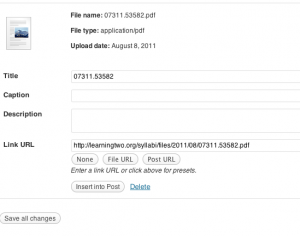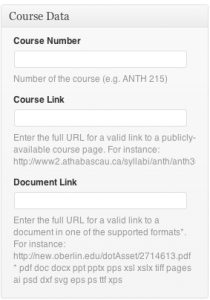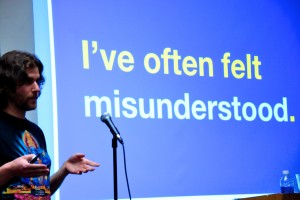Is “intimacy” a mere correlate of the network effect?
Can we use the network effect to explain what has been happening with Quora?
Is the Quora hype related to network effect?
I really don’t feel a need to justify my dislike of Quora. Oh, sure, I can explain it. At length. Even on Quora itself. And elsewhere. But I tend to sense some defensiveness on the part of Quora fans.
[Speaking of fans, I have blogposts on fanboism laying in my head, waiting to be hatched. Maybe this will be part of it.]
But the important point, to me, isn’t about whether or not I like Quora. It’s about what makes Quora so divisive. There are people who dislike it and there are some who defend it.
Originally, I was only hearing from contacts and friends who just looooved Quora. So I was having a “Ionesco moment”: why is it that seemingly “everyone” who uses it loves Quora when, to me, it represents such a move in the wrong direction? Is there something huge I’m missing? Or has that world gone crazy?
It was a surreal experience.
And while I’m all for surrealism, I get this strange feeling when I’m so unable to understand a situation. It’s partly a motivation for delving into the issue (I’m surely not the only ethnographer to get this). But it’s also unsettling.
And, for Quora at least, this phase seems to be over. I now think I have a good idea as to what makes for such a difference in people’s experiences with Quora.
It has to do with the network effect.
I’m sure some Quora fanbois will disagree, but it’s now such a clear picture in my mind that it gets me into the next phase. Which has little to do with Quora itself.
The “network effect” is the kind of notion which is so commonplace that few people bother explaining it outside of introductory courses (same thing with “group forming” in social psychology and sociology, or preferential marriage patterns in cultural anthropology). What someone might call (perhaps dismissively): “textbook stuff.”
I’m completely convinced that there’s a huge amount of research on the network effect, but I’m also guessing few people looking it up. And I’m accusing people, here. Ever since I first heard of it (in 1993, or so), I’ve rarely looked at explanations of it and I actually don’t care about the textbook version of the concept. And I won’t “look it up.” I’m more interested in diverse usage patterns related to the concept (I’m a linguistic anthropologist).
So, the version I first heard (at a time when the Internet was off most people’s radar) was something like: “in networked technology, you need critical mass for the tools to become truly useful. For instance, the telephone has no use if you’re the only one with one and it has only very limited use if you can only call a single person.” Simple to the point of being simplistic, but a useful reminder.
Over the years, I’ve heard and read diverse versions of that same concept, usually in more sophisticated form, but usually revolving around the same basic idea that there’s a positive effect associated with broader usage of some networked technology.
I’m sure specialists have explored every single implication of this core idea, but I’m not situating myself as a specialist of technological networks. I’m into social networks, which may or may not be associated with technology (however defined). There are social equivalents of the “network effect” and I know some people are passionate about those. But I find that it’s quite limiting to focus so exclusively on quantitative aspects of social networks. What’s so special about networks, in a social science perspective, isn’t scale. Social scientists are used to working with social groups at any scale and we’re quite aware of what might happen at different scales. But networks are fascinating because of different features they may have. We may gain a lot when we think of social networks as acephalous, boundless, fluid, nameless, indexical, and impactful. [I was actually lecturing about some of this in my “Intro to soci” course, yesterday…]
So, from my perspective, “network effect” is an interesting concept when talking about networked technology, in part because it relates to the social part of those networks (innovation happens mainly through technological adoption, not through mere “invention”). But it’s not really the kind of notion I’d visit regularly.
This case is somewhat different. I’m perceiving something rather obvious (and which is probably discussed extensively in research fields which have to do with networked technology) but which strikes me as missing from some discussions of social networking systems online. In a way, it’s so obvious that it’s kind of difficult to explain.
But what’s coming up in my mind has to do with a specific notion of “intimacy.” It’s actually something which has been on my mind for a while and it might still need to “bake” a bit longer before it can be shared properly. But, like other University of the Streets participants, I perceive the importance of sharing “half-baked thoughts.”
And, right now, I’m thinking of an anecdotal context which may get the point across.
Given my attendance policy, there are class meetings during which a rather large proportion of the class is missing. I tend to call this an “intimate setting,” though I’m aware that it may have different connotations to different people. From what I can observe, people in class get the point. The classroom setting is indeed changing significantly and it has to do with being more “intimate.”
Not that we’re necessarily closer to one another physically or intellectually. It needs not be a “bonding experience” for the situation to be interesting. And it doesn’t have much to do with “absolute numbers” (a classroom with 60 people is relatively intimate when the usual attendance is close to 100; a classroom with 30 people feels almost overwhelming when only 10 people were showing up previously). But there’s some interesting phenomenon going on when there are fewer people than usual, in a classroom.
Part of this phenomenon may relate to motivation. In some ways, one might expect that those who are attending at that point are the “most dedicated students” in the class. This might be a fairly reasonable assumption in the context of a snowstorm but it might not work so well in other contexts (say, when the incentive to “come to class” relates to extrinsic motivation). So, what’s interesting about the “intimate setting” isn’t necessarily that it brings together “better people.” It’s that something special goes on.
What’s going on, with the “intimate classroom,” can vary quite a bit. But there’s still “something special” about it. Even when it’s not a bonding experience, it’s still a shared experience. While “communities of practice” are fascinating, this is where I tend to care more about “communities of experience.” And, again, it doesn’t have much to do with scale and it may have relatively little to do with proximity (physical or intellectual). But it does have to do with cognition and communication. What is special with the “intimate classroom” has to do with shared assumptions.
Going back to Quora…
While an online service with any kind of network effect is still relatively new, there’s something related to the “intimate setting” going on. In other words, it seems like the initial phase of the network effect is the “intimacy” phase: the service has a “large enough userbase” to be useful (so, it’s achieved a first type of critical mass) but it’s still not so “large” as to be overwhelming.
During that phase, the service may feel to people like a very welcoming place. Everyone can be on a “first-name basis. ” High-status users mingle with others as if there weren’t any hierarchy. In this sense, it’s a bit like the liminal phase of a rite of passage, during which communitas is achieved.
This phase is a bit like the Golden Age for an online service with a significant “social dimension.” It’s the kind of time which may make people “wax nostalgic about the good ole days,” once it’s over. It’s the time before the BYT comes around.
Sure, there’s a network effect at stake. You don’t achieve much of a “sense of belonging” by yourself. But, yet again, it’s not really a question of scale. You can feel a strong bond in a dyad and a team of three people can perform quite well. On the other hand, the cases about which I’m thinking are orders of magnitude beyond the so-called “Dunbar number” which seems to obsess so many people (outside of anthro, at least).
Here’s where it might get somewhat controversial (though similar things have been said about Quora): I’d argue that part of this “intimacy effect” has to do with a sense of “exclusivity.” I don’t mean this as the way people talk about “elitism” (though, again, there does seem to be explicit elitism involved in Quora’s case). It’s more about being part of a “select group of people.” About “being there at the time.” It can get very elitist, snobbish, and self-serving very fast. But it’s still about shared experiences and, more specifically, about the perceived boundedness of communities of experience.
We all know about early adopters, of course. And, as part of my interest in geek culture, I keep advocating for more social awareness in any approach to the adoption part of social media tools. But what I mean here isn’t about a “personality type” or about the “attributes of individual actors.” In fact, this is exactly a point at which the study of social networks starts deviating from traditional approaches to sociology. It’s about the special type of social group the “initial userbase” of such a service may represent.
From a broad perspective (as outsiders, say, or using the comparativist’s “etic perspective”), that userbase is likely to be rather homogeneous. Depending on the enrollment procedure for the service, the structure of the group may be a skewed version of an existing network structure. In other words, it’s quite likely that, during that phase, most of the people involved were already connected through other means. In Quora’s case, given the service’s pushy overeagerness on using Twitter and Facebook for recruitment, it sounds quite likely that many of the people who joined Quora could already be tied through either Twitter or Facebook.
Anecdotally, it’s certainly been my experience that the overwhelming majority of people who “follow me on Quora” have been part of my first degree on some social media tool in the recent past. In fact, one of my main reactions as I’ve been getting those notifications of Quora followers was: “here are people with whom I’ve been connected but with whom I haven’t had significant relationships.” In some cases, I was actually surprised that these people would “follow” me while it appeared like they actually weren’t interested in having any kind of meaningful interactions. To put it bluntly, it sometimes appeared as if people who had been “snubbing” me were suddenly interested in something about me. But that was just in the case of a few people I had unsuccessfully tried to engage in meaningful interactions and had given up thinking that we might not be that compatible as interlocutors. Overall, I was mostly surprised at seeing the quick uptake in my follower list, which doesn’t tend to correlate with meaningful interaction, in my experience.
Now that I understand more about the unthinking way new Quora users are adding people to their networks, my surprise has transformed into an additional annoyance with the service. In a way, it’s a repeat of the time (what was it? 2007?) when Facebook applications got their big push and we kept receiving those “app invites” because some “social media mar-ke-tors” had thought it wise to force people to “invite five friends to use the service.” To Facebook’s credit (more on this later, I hope), these pushy and thoughtless “invitations” are a thing of the past…on those services where people learnt a few lessons about social networks.
Perhaps interestingly, I’ve had a very similar experience with Scribd, at about the same time. I was receiving what seemed like a steady flow of notifications about people from my first degree online network connecting with me on Scribd, whether or not they had ever engaged in a meaningful interaction with me. As with Quora, my initial surprise quickly morphed into annoyance. I wasn’t using any service much and these meaningless connections made it much less likely that I would ever use these services to get in touch with new and interesting people. If most of the people who are connecting with me on Quora and Scribd are already in my first degree and if they tend to be people I have limited interactions, why would I use these services to expand the range of people with whom I want to have meaningful interactions? They’re already within range and they haven’t been very communicative (for whatever reason, I don’t actually assume they were consciously snubbing me). Investing in Quora for “networking purposes” seemed like a futile effort, for me.
Perhaps because I have a specific approach to “networking.”
In my networking activities, I don’t focus on either “quantity” or “quality” of the people involved. I seriously, genuinely, honestly find something worthwhile in anyone with whom I can eventually connect, so the “quality of the individuals” argument doesn’t work with me. And I’m seriously, genuinely, honestly not trying to sell myself on a large market, so the “quantity” issue is one which has almost no effect on me. Besides, I already have what I consider to be an amazing social network online, in terms of quality of interactions. Sure, people with whom I interact are simply amazing. Sure, the size of my first degree network on some services is “well above average.” But these things wouldn’t matter at all if I weren’t able to have meaningful interactions in these contexts. And, as it turns out, I’m lucky enough to be able to have very meaningful interactions in a large range of contexts, both offline and on. Part of it has to do with the fact that I’m teaching addict. Part of it has to do with the fact that I’m a papillon social (social butterfly). It may even have to do with a stage in my life, at which I still care about meeting new people but I don’t really need new people in my circle. Part of it makes me much less selective than most other people (I like to have new acquaintances) and part of it makes me more selective (I don’t need new “friends”). If it didn’t sound condescending, I’d say it has to do with maturity. But it’s not about my own maturity as a human being. It’s about the maturity of my first-degree network.
There are other people who are in an expansionist phase. For whatever reason (marketing and job searches are the best-known ones, but they’re really not the only ones), some people need to get more contacts and/or contacts with people who have some specific characteristics. For instance, there are social activists out there who need to connect to key decision-makers because they have a strong message to carry. And there are people who were isolated from most other people around them because of stigmatization who just need to meet non-judgmental people. These, to me, are fine goals for someone to expand her or his first-degree network.
Some of it may have to do with introversion. While extraversion is a “dominant trait” of mine, I care deeply about people who consider themselves introverts, even when they start using it as a divisive label. In fact, that’s part of the reason I think it’d be neat to hold a ShyCamp. There’s a whole lot of room for human connection without having to rely on devices of outgoingness.
So, there are people who may benefit from expansion of their first-degree network. In this context, the “network effect” matters in a specific way. And if I think about “network maturity” in this case, there’s no evaluation involved, contrary to what it may seem like.
As you may have noticed, I keep insisting on the fact that we’re talking about “first-degree network.” Part of the reason is that I was lecturing about a few key network concepts just yesterday so, getting people to understand the difference between “the network as a whole” (especially on an online service) and “a given person’s first-degree network” is important to me. But another part relates back to what I’m getting to realize about Quora and Scribd: the process of connecting through an online service may have as much to do with collapsing some degrees of separation than with “being part of the same network.” To use Granovetter’s well-known terms, it’s about transforming “weak ties” into “strong” ones.
And I specifically don’t mean it as a “quality of interaction.” What is at stake, on Quora and Scribd, seems to have little to do with creating stronger bonds. But they may want to create closer links, in terms of network topography. In a way, it’s a bit like getting introduced on LinkedIn (and it corresponds to what biz-minded people mean by “networking”): you care about having “access” to that person, but you don’t necessarily care about her or him, personally.
There’s some sense in using such an approach on “utilitarian networks” like professional or Q&A ones (LinkedIn does both). But there are diverse ways to implement this approach and, to me, Quora and Scribd do it in a way which is very precisely counterproductive. The way LinkedIn does it is context-appropriate. So is the way Academia.edu does it. In both of these cases, the “transaction cost” of connecting with someone is commensurate with the degree of interaction which is possible. On Scribd and Quora, they almost force you to connect with “people you already know” and the “degree of interaction” which is imposed on users is disproportionately high (especially in Quora’s case, where a contact of yours can annoy you by asking you personally to answer a specific question). In this sense, joining Quora is a bit closer to being conscripted in a war while registering on Academia.edu is just a tiny bit more like getting into a country club. The analogies are tenuous but they probably get the point across. Especially since I get the strong impression that the “intimacy phase” has a lot to do with the “country club mentality.”
See, the social context in which these services gain much traction (relatively tech-savvy Anglophones in North America and Europe) assign very negative connotations to social exclusion but people keep being fascinating by the affordances of “select clubs” in terms of social capital. In other words, people may be very vocal as to how nasty it would be if some people had exclusive access to some influential people yet there’s what I perceive as an obsession with influence among the same people. As a caricature: “The ‘human rights’ movement leveled the playing field and we should never ever go back to those dark days of Old Boys’ Clubs and Secret Societies. As soon as I become the most influential person on the planet, I’ll make sure that people who think like me get the benefits they deserve.”
This is where the notion of elitism, as applied specifically to Quora but possibly expanding to other services, makes the most sense. “Oh, no, Quora is meant for everyone. It’s Democratic! See? I can connect with very influential people. But, isn’t it sad that these plebeians are coming to Quora without a proper knowledge of the only right way to ask questions and without proper introduction by people I can trust? I hate these n00bz! Even worse, there are people now on the service who are trying to get social capital by promoting themselves. The nerve on these people, to invade my own dedicated private sphere where I was able to connect with the ‘movers and shakers’ of the industry.” No wonder Quora is so journalistic.
But I’d argue that there’s a part of this which is a confusion between first-degree networks and connection. Before Quora, the same people were indeed connected to these “influential people,” who allegedly make Quora such a unique system. After all, they were already online and I’m quite sure that most of them weren’t more than three or four degrees of separation from Quora’s initial userbase. But access to these people was difficult because connections were indirect. “Mr. Y Z, the CEO of Company X was already in my network, since there were employees of Company X who were connected through Twitter to people who follow me. But I couldn’t just coldcall CEO Z to ask him a question, since CEOs are out of reach, in their caves. Quora changed everything because Y responded to a question by someone ‘totally unconnected to him’ so it’s clear, now, that I have direct access to my good ol’ friend Y’s inner thoughts and doubts.”
As RMS might say, this type of connection is a “seductive mirage.” Because, I would argue, not much has changed in terms of access and whatever did change was already happening all over this social context.
At the risk of sounding dismissive, again, I’d say that part of what people find so alluring in Quora is “simply” an epiphany about the Small World phenomenon. With all sorts of fallacies caught in there. Another caricature: “What? It takes only three contacts for me to send something from rural Idaho to the head honcho at some Silicon Valley firm? This is the first time something like this happens, in the History of the Whole Wide World!”
Actually, I do feel quite bad about these caricatures. Some of those who are so passionate about Quora, among my contacts, have been very aware of many things happening online since the early 1990s. But I have to be honest in how I receive some comments about Quora and much of it sounds like a sudden realization of something which I thought was a given.
The fact that I feel so bad about these characterizations relates to the fact that, contrary to what I had planned to do, I’m not linking to specific comments about Quora. Not that I don’t want people to read about this but I don’t want anyone to feel targeted. I respect everyone and my characterizations aren’t judgmental. They’re impressionistic and, again, caricatures.
Speaking of what I had planned, beginning this post… I actually wanted to talk less about Quora specifically and more about other issues. Sounds like I’m currently getting sidetracked, and it’s kind of sad. But it’s ok. The show must go on.
So, other services…
While I had a similar experiences with Scribd and Quora about getting notifications of new connections from people with whom I haven’t had meaningful interactions, I’ve had a very different experience on many (probably most) other services.
An example I like is Foursquare. “Friendship requests” I get on Foursquare are mostly from: people with whom I’ve had relatively significant interactions in the past, people who were already significant parts of my second-degree network, or people I had never heard of. Sure, there are some people with whom I had tried to establish connections, including some who seem to reluctantly follow me on Quora. But the proportion of these is rather minimal and, for me, the stakes in accepting a friend request on Foursquare are quite low since it’s mostly about sharing data I already share publicly. Instead of being able to solicit my response to a specific question, the main thing my Foursquare “friends” can do that others can’t is give me recommendations, tips, and “notifications of their presence.” These are all things I might actually enjoy, so there’s nothing annoying about it. Sure, like any online service with a network component, these days, there are some “friend requests” which are more about self-promotion. But those are usually easy to avoid and, even if I get fooled by a “social media mar-ke-tor,” the most this person may do to me is give usrecommendation about “some random place.” Again, easy to avoid. So, the “social network” dimension of Foursquare seems appropriate, to me. Not ideal, but pretty decent.
I never really liked the “game” aspect and while I did play around with getting badges and mayorships in my first few weeks, it never felt like the point of Foursquare, to me. As Foursquare eventually became mainstream in Montreal and I was asked by a journalist about my approach to Foursquare, I was exactly in the phase when I was least interested in the game aspect and wished we could talk a whole lot more about the other dimensions of the phenomenon.
And I realize that, as I’m saying this, I may sound to some as exactly those who are bemoaning the shift out of the initial userbase of some cherished service. But there are significant differences. Note that I’m not complaining about the transition in the userbase. In the Foursquare context, “the more the merrier.” I was actually glad that Foursquare was becoming mainstream as it was easier to explain to people, it became more connected with things business owners might do, and generally had more impact. What gave me pause, at the time, is the journalistic hype surrounding Foursquare which seemed to be missing some key points about social networks online. Besides, I was never annoyed by this hype or by Foursquare itself. I simply thought that it was sad that the focus would be on a dimension of the service which was already present on not only Dodgeball and other location-based services but, pretty much, all over the place. I was critical of the seemingly unthinking way people approached Foursquare but the service itself was never that big a deal for me, either way.
And I pretty much have the same attitude toward any tool. I happen to have my favourites, which either tend to fit neatly in my “workflow” or otherwise have some neat feature I enjoy. But I’m very wary of hype and backlash. Especially now. It gets old very fast and it’s been going for quite a while.
Maybe I should just move away from the “tech world.” It’s the context for such hype and buzz machine that it almost makes me angry. [I very rarely get angry.] Why do I care so much? You can say it’s accumulation, over the years. Because I still care about social media and I really do want to know what people are saying about social media tools. I just wish discussion of these tools weren’t soooo “superlative”…
Obviously, I digress. But this is what I like to do on my blog and it has a cathartic effect. I actually do feel better now, thank you.
And I can talk about some other things I wanted to mention. I won’t spend much time on them because this is long enough (both as a blogpost and as a blogging session). But I want to set a few placeholders, for further discussion.
One such placeholder is about some pet theories I have about what worked well with certain services. Which is exactly the kind of thing “social media entrepreneurs” and journalists are so interested in, but end up talking about the same dimensions.
Let’s take Twitter, for instance. Sure, sure, there’s been a lot of talk about what made Twitter a success and probably-everybody knows that it got started as a side-project at Odeo, and blah, blah, blah. Many people also realize that there were other microblogging services around as Twitter got traction. And I’m sure some people use Twitter as a “textbook case” of “network effect” (however they define that effect). I even mention the celebrity dimensions of the “Twitter phenomenon” in class (my students aren’t easily starstruck by Bieber and Gaga) and I understand why journalists are so taken by Twitter’s “broadcast” mission. But something which has been discussed relatively rarely is the level of responsiveness by Twitter developers, over the years, to people’s actual use of the service. Again, we all know that “@-replies,” “hashtags,” and “retweets” were all emerging usage patterns that Twitter eventually integrated. And some discussion has taken place when Twitter changed it’s core prompt to reflect the fact that the way people were using it had changed. But there’s relatively little discussion as to what this process implies in terms of “developing philosophy.” As people are still talking about being “proactive” (ugh!) with users, and crude measurements of popularity keep being sold and bandied about, a large part of the tremendous potential for responsiveness (through social media or otherwise) is left untapped. People prefer to hype a new service which is “likely to have Twitter-like success because it has the features users have said they wanted in the survey we sell.” Instead of talking about the “get satisfaction” effect in responsiveness. Not that “consumers” now have “more power than ever before.” But responsive developers who refrain from imposing their views (Quora, again) tend to have a more positive impact, socially, than those which are merely trying to expand their userbase.
Which leads me to talk about Facebook. I could talk for hours on end about Facebook, but I almost feel afraid to do so. At this point, Facebook is conceived in what I perceive to be such a narrow way that it seems like anything I might say would sound exceedingly strange. Given the fact that it was part one of the first waves of Web tools with explicit social components to reach mainstream adoption, it almost sounds “historical” in timeframe. But, as so many people keep saying, it’s just not that old. IMHO, part of the implication of Facebook’s relatively young age should be that we are able to discuss it as a dynamic process, instead of assigning it to a bygone era. But, whatever…
Actually, I think part of the reason there’s such lack of depth in discussing Facebook is also part of the reason it was so special: it was originally a very select service. Since, for a significant period of time, the service was only available to people with email addresses ending in “.edu,” it’s not really surprising that many of the people who keep discussing it were actually not on the service “in its formative years.” But, I would argue, the fact that it was so exclusive at first (something which is often repeated but which seems to be understood in a very theoretical sense) contributed quite significantly to its success. Of course, similar claims have been made but, I’d say that my own claim is deeper than others.
[Bang! I really don’t tend to make claims so, much of this blogpost sounds to me as if it were coming from somebody else…]
Ok, I don’t mean it so strongly. But there’s something I think neat about the Facebook of 2005, the one I joined. So I’d like to discuss it. Hence the placeholder.
And, in this placeholder, I’d fit: the ideas about responsiveness mentioned with Twitter, the stepwise approach adopted by Facebook (which, to me, was the real key to its eventual success), the notion of intimacy which is the true core of this blogpost, the notion of hype/counterhype linked to journalistic approaches, a key distinction between privacy and intimacy, some non-ranting (but still rambling) discussion as to what Google is missing in its “social” projects, anecdotes about “sequential network effects” on Facebook as the service reached new “populations,” some personal comments about what I get out of Facebook even though I almost never spent any significant amount of time on it, some musings as to the possibility that there are online services which have reached maturity and may remain stable in the foreseeable future, a few digressions about fanboism or about the lack of sophistication in the social network models used in online services, and maybe a bit of fun at the expense of “social media expert marketors”…
But that’ll be for another time.
Cheers!









